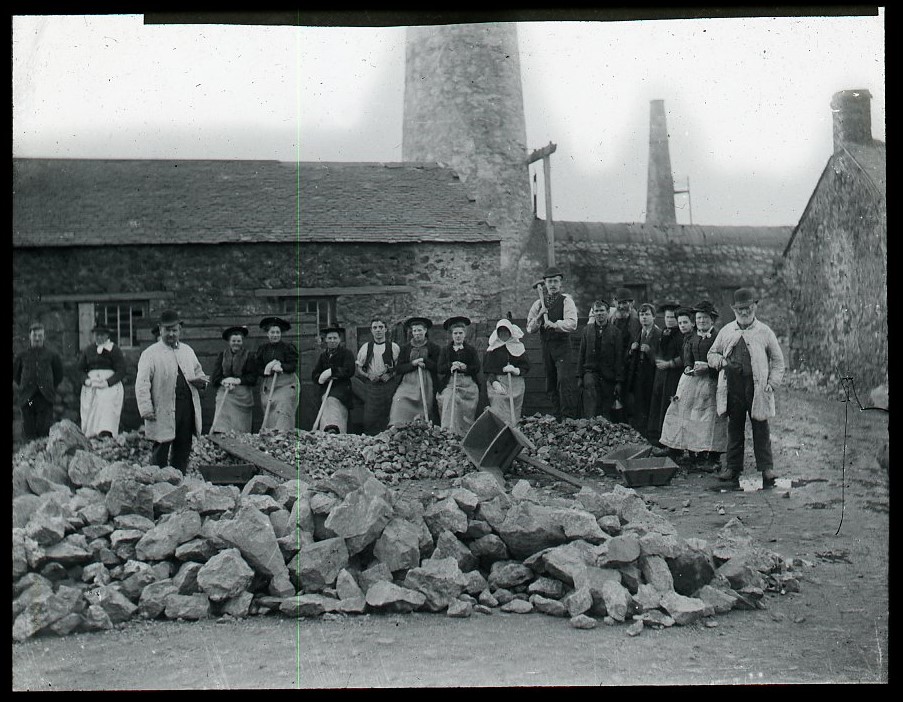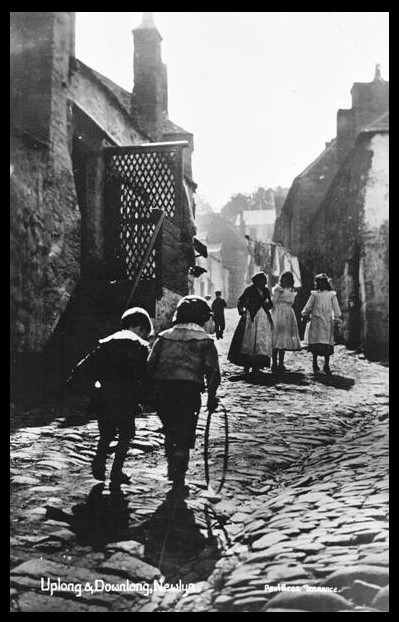Women in History Month: The role of the Cornish Miner’s “Married Widow”

‘Sheer neglect comes over some who were good husbands or sons at home. Or improper relations spring up between the absent ones and sirens in the strange land; letters and remittances grow fewer; then utter silence. Gloom and fear, then (as some whisper comes that the traitorous absentee is alive and well) distrust, and, lingeringly but finally, no hope – these haunt many a household.’
– The Cornishman, 15th September 1898, p.4
During the 19th century, Cornwall suffered a mass exodus of men in search of work abroad as the local mining industry dwindled, often leaving their wives and children behind. This was particularly disastrous for the wives who were now in ‘transnational nuclear families’ which, in turn, ensued both social and financial implications.
At the time of the ‘Great Emigration’, the miners’ wives were at the mercy of their husbands’ support packages, namely a percentage of their earnings. Although husbands were expected to continue supporting their families, many failed to adhere to their responsibilities; as a result, these wives were socially labelled the ‘married widows’.
Often, ‘married widows’ would look towards the state to financially contribute to their wellbeing, however ‘poor relief’ was not provided until at least 12 months following their husbands departure.
This was a result of rumours that suggested men, in certain cases, were relying on the state to care for their wives, enabling them to save one-hundred percent of their income for their return.

In other cases, husbands were known to have abandoned their wives and children as they began a new life overseas. In an effort to disgrace these men, local newspapers took to describing the individuals to make their return uncomfortable, should they wish to come home.
Both situations humiliated the women as they struggled both socially and financially without their husbands. Thus, some ‘married widows’ resorted to crime amidst a life of pauperism.
Of course, women always had the option to join the workhouse should they not have enough resources to house themselves and their children; however, this would usually see the family split up.
On the other hand, some women began to play the state, claiming ‘poor relief’ in addition to receiving their husbands’ monies. Although this was difficult to do, with only few likely to have done so, rumours caused a change in social attitude. Consequently, this altered the criteria to receive ‘poor relief’ and caused other by-the-book women to struggle more than previously necessary.
Moreover, in other instances, women sought out paid work for themselves instead of being solely dependent on external persons. This was somewhat frowned upon by others as the primary role of a wife was to be a mother. Finding honest work could be challenging, therefore a popular option to supplement income was to take in a lodger.
Taking in a lodger, particularly a male lodger, often created complications as, once again, rumours were spread. Although many rumours were untrue, some wives did enter adulterous relations as they enjoyed the companionship of another.
This was detrimental for society, damaging those wives’ reputations and was regarded as the cause of some marital breakdowns.
In this situation, not only would the wives lose their husband, with divorces known to have been requested on the grounds of infidelity, but would also jeopardise their ‘poor relief’ as the state would only provide to those with an upstanding reputation.
Overall, women had very few options available to them after their husbands left in search of new mining roles, with many resorting to pauperism, crime, the workhouse and/or infidelity.
Much of the history surrounding this time was written from the male perspective as women were largely viewed as secondary citizens. As such, it is important that their stories are shared, not only to provide a more complete overview of how Cornwall’s society evolved following the collapse of the mining industry, but also to ensure women’s history is not rewritten or forgotten.

Archive images in this story are courtesy of Kresen Kernow – (‘Cornwall Centre’) is home to the world’s largest collection of documents, books, maps and photographs related to Cornwall’s history. Above image of the former tin mine in the sunset is from Shutterstock licence.
Date:
Mar 7, 2023
Author:
Bethany Uren

